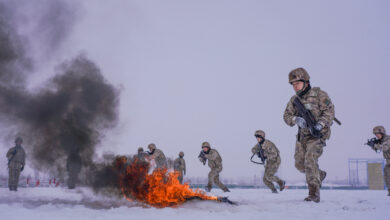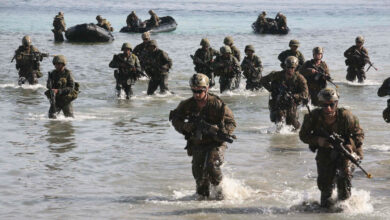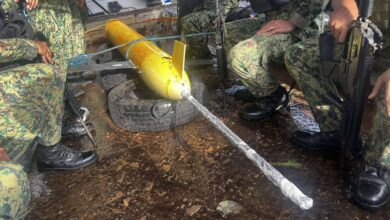Philippines to Acquire Israeli Missile-Capable Patrol Boats for $209M
The $209M deal will include “knowledge transfer for the construction of the vessels” and shipyard upgrade, as well as training and maintenance.
The Philippines is poised to acquire missile-capable fast patrol boats in a deal with an Israeli shipbuilding company.
Israeli Shipyards announced in a press release this month that it has been awarded a tender to supply an undisclosed East Asian country with the Shaldag MK V vessel.
Philippine Department of National Defense Director Arsenio Andolong, however, confirmed that Israeli Shipyards will supply the country with Shaldag Mk. V vessels in a contract price of 10 billion Philippine peso
($209 million). The deal will include “knowledge transfer for the construction of the vessels” and shipyard upgrade, as well as training and maintenance.
In February, the Philippine Navy announced that it is looking to acquire nine new Israeli fast patrol boats — five of which will be made in Israel and delivered in 2022, with the remaining four built in the Philippines. The Shaldag Mark V fast patrol craft is intended to replace the Navy’s current Tomas Batillo class vessels.
West Philippine Sea
The Shaldag MK V has an overall length of 32.65m (107ft), with a max speed above 40 knots. It is combat-proven, all-aluminum, light, and fast with a higher payload capacity, and designed for naval security missions. Israeli Shipyard claims that it is “a recognized leader in the protection of littoral and EEZ waters.”
As tensions in the South China Sea continue, Philippine President Rodrigo Duterte said he is ready to deploy military ships to the South China Sea to assert the country’s claim over oil deposits in the area. He also said that he will not withdraw the Philippine navy and coast guard boats patrolling the disputed area, insisting the country’s sovereignty over the waters is “not subject to compromise.”
Department of National Defense Secretary Delfin N. Lorenzana said earlier this month that the country will continue to defend the disputed areas. “Our Philippine Coast Guard and Bureau of Fisheries and Aquatic Resources will not stop patrolling the West Philippine Sea [South China Sea] and Kalayaan Island Group,” Lorenzana stated.












